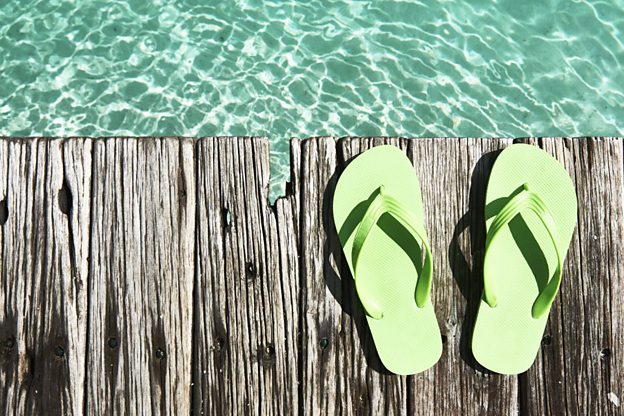Unit 30: Tales of survival
Present and past modals of ability
Select a unit
- 1 Nice to meet you!
- 2 What to wear
- 3 Like this, like that
- 4 The daily grind
- 5 Christmas every day
- 6 Great achievers
- 7 The Titanic
- 8 Travel
- 9 The big wedding
- 10 Sunny's job hunt
- 11 The bucket list
- 12 Moving and migration
- 13 Welcome to BBC Broadcasting House
- 14 New Year, New Project
- 15 From Handel to Hendrix
- 16 What's the weather like?
- 17 The Digital Revolution
- 18 A detective story
- 19 A place to live
- 20 The Cult of Celebrity
- 21 Welcome to your new job
- 22 Beyond the planets
- 23 Great expectations!
- 24 Eco-tourism
- 25 Moving house
- 26 It must be love
- 27 Job hunting success... and failure
- 28 Speeding into the future
- 29 Lost arts
- 30 Tales of survival
Session 3
How are sandals helping orphans? Hear the inspirational story of two British brothers who believe you can make money and do good. We also practise could, be able to and manage to as we read their tale.
Activity 1
Turning tragedy into triumph
We looked at the differences between can, could, be able to and manage to in Session 2. Now we're going to see all this language in context, as we do a reading activity about an incredible pair of brothers. Rob and Paul Forkan turned tragedy into triumph, with the help of some flip flops.
Read the article twice. The first time, read it quite quickly and don't worry too much if you don't understand every detail. Just try to get a general understanding. Then read it more carefully. We'll have a few questions afterwards to test you!
Read the text and complete the activity

Tragedy struck for brothers Rob and Paul Forkan when they lost their parents in the 2004 Asian tsunami. Now, over ten years later, they're using their flip flop business to help other orphans.
The boys had an unusual childhood. They were just 11 and 13 when their parents, Kevin and Sandra, took them out of the UK education system and moved the family to Goa in India. There they did lots of voluntary work and mixed with the local community.
It was when the family were on holiday in Sri Lanka that the tsunami hit. Although the children managed to escape, their parents tragically couldn't.
But Paul says their upbringing meant they were able to cope with this tough blow.
"Our parents gave us this confidence that we could do anything, that nothing was hard to achieve," says Paul.
What the boys did was start a business selling ethically-sourced sandals. They say they can make a profit and do good at the same time: they give 10% of their profit to charity, and have set up their own foundation through which they've been able to open a children's home in Sri Lanka.
Nonetheless, the brothers had problems early on with the quality of the flip flops, which were handmade in India.
"If you brought in 100, you could only sell 10 of them, because of poor quality control," says Paul.
They were able to solve the problem by moving production to a factory in China.
And what about the sandals themselves? They're called 'Gandys' after the father of India's independence movement, Mahatma Gandhi.
"He was in all our schoolbooks as kids, he's on all the money over in India, he's famous for wearing his flip flops," says Paul.
To do
Now, answer the questions about their story.
Standing on their own two feet...
5 Questions
It's time to see how much you understood. Answer these questions about the brothers' story
Help
Activity
It's time to see how much you understood. Answer these questions about the brothers' story
Hint
The sandals are 'ethically-sourced'.Question 1 of 5
Help
Activity
It's time to see how much you understood. Answer these questions about the brothers' story
Hint
'Upbringing' means 'the way or process of bringing someone up'. Have another look at paragraph three.Question 2 of 5
Help
Activity
It's time to see how much you understood. Answer these questions about the brothers' story
Hint
Have another look at paragraph six.Question 3 of 5
Help
Activity
It's time to see how much you understood. Answer these questions about the brothers' story
Hint
Have another look at paragraph seven.Question 4 of 5
Help
Activity
It's time to see how much you understood. Answer these questions about the brothers' story
Hint
Have another look at paragraph three.Question 5 of 5
Excellent! Great job! Bad luck! You scored:
Next
Well done. Did you manage to get them all right? Now it's time to look at the language they used in more detail.
Session Vocabulary
tragedy
very sad eventtriumph
victoryflip flops
simple sandals with one attachment between the toesstruck
hittsunami
very large waveorphans
children with no parentsvoluntary work
work done for no money, willingly, usually for a good causeupbringing
the way or process of bringing someone upblow
difficultyethically-sourced
(of a product) made in a morally acceptable way